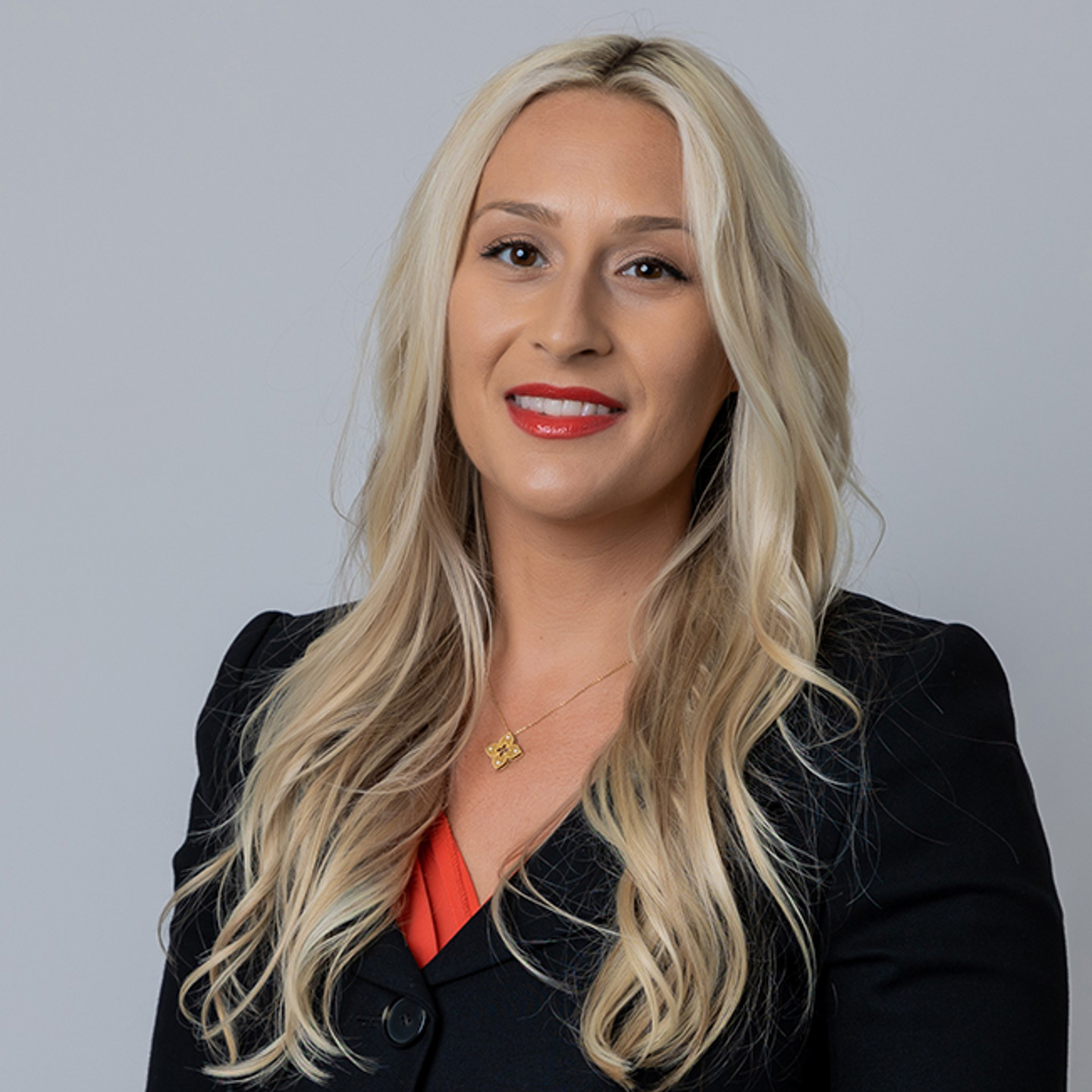
Sophie Peat
Partner | Legal
Cayman Islands

Sophie Peat
Partner
Cayman Islands
No Content Set
Exception:
Website.Models.ViewModels.Components.General.Banners.BannerComponentVm
Proposed new legislation for brand protection has been drafted, and once finalised and implemented it could have an impact for any brand owner that operates or holds trade marks in the British Overseas Territory. In an exclusive guest post for World Trademarks Review, Ogier partner Sophie Peat considers some of the major changes that may be on the horizon in Bermuda, a leading international financial centre.
In December 2022, Bermuda's Minister for Tourism and the Cabinet Office, The Hon Vance M Campbell, gave a ministerial statement updating the House on the government's progress in revamping its outdated suite of IP legislation, including legislation in the field of trademarks, copyright, patents and designs. Bermuda has taken UK IP legislation as a framework on which to base its new laws and regulations and the UK Intellectual Property Office (UKIPO) will be invited to review and comment on the proposed draft legislation after an industry consultation has been completed.
Once the new legislation is implemented, the United Kingdom's strong body of IP case law and UKIPO guidance notes will form key reference points in administering the new regime. The UK government will also be asked to extend several international treaties governing the protection of IP rights to Bermuda as part of the modernisation process.
The new trademark legislation has already been drafted and is out for industry consultation. Bermuda's current trademark law was last updated in the 1990s, but is almost 50 years' old in effect. The minister has advised that the new trademark legislation will reflect "modern processes and industry best practices". The term of initial trademark protection will increase from seven to 10 years and the current 14-year renewal term will decrease to 10 years in line with most other jurisdictions around the world.
It is yet to be seen what other changes will be made, but a number of potential changes might be on the horizon.
The Bermuda Trademark Register is currently split into two parts:
Part A, for marks that are inherently distinctive or have acquired distinctiveness through use; and
Part B, for marks with a lower level of distinctiveness, but which are nonetheless "capable of distinguishing" the goods/services of the owner.
This stems from the UK Trademarks Act 1938. However, this can be confusing for brand owners who are often unsure of the differing protections provided under each part of the register.
Up until 2020, Trinidad and Tobago also split its trade mark register into Parts A and B following the old UK approach. However, the Trademarks Act (8/2015), which came into effect in Trinidad and Tobago in 2020, removed the distinction, including for existing trade mark registrations. I would imagine that Bermuda will take a similar approach when modernising its law, which will make the prosecution process easier for both local and international brand owners to follow.
A single-class registration regime is currently in effect in Bermuda, which can make the filing process unduly costly for local and international brand owners. The current official cost of filing and registering a trade mark in Bermuda in a single class is US$512.
The United Kingdom provides for multi-class registrations; therefore, it is hoped that Bermuda will move to the multi-class system as part of the modernisation process. This should also lead to some cost savings. In most multi-class filing jurisdictions, the official cost of filing in additional classes is less than the cost of filing in the first class.
If Bermuda moves to a multi-class system, it will be interesting to see whether the Bermuda Registry General will undertake an exercise to merge existing registrations and/or pending applications for identical marks in different classes in the name of the same owner into multi-class applications/registrations or whether it will be necessary for brand owners to review their own Bermuda trade mark portfolios and apply to merge the relevant applications/registrations.
It is too early to know to what extent, if any, the official fee pricing may change, but there are also currently two fees payable as part of the filing and registration process. An official fee of US$256 is paid on filing and a further fee of US$256 is paid on registration, per class.
It would be more transparent and straightforward for brand owners and less administration for local practitioners if a single application/registration fee was payable on filing, as is the case in the United Kingdom. In the United Kingdom, the official cost of registering a trademark in a single class is £170 (online filing) or £200 (paper filing) and the cost of protection for each additional class is £50.
The United Kingdom removed the requirement for the graphical representation of trade marks in 2017. If Bermuda follows suit in this regard, it could open the door for the protection of certain non-conventional trade marks (eg, sound marks, multimedia marks, motion marks or holograms), in addition to the more standard types of trademarks (eg, word, figurative, device, position and colour marks). In any case, I would anticipate that protection will be provided for collective and certification marks, which are protected under the current UK legislation, but not under the existing Bermuda legislation.
The current Bermuda trade mark legislation allows for the registration of series marks. Applicants can register several variations of a trade mark within a single series mark application. This applies to variations of trade marks that resemble each other as to their material particulars and differ only as to matters of a non-distinctive character not substantially affecting the identity of the mark. Since the United Kingdom remains one of a handful of jurisdictions that offer series mark protection, it is likely that such marks will remain protectable in Bermuda. However, according to the UKIPO, 40% of series mark applications filed in the United Kingdom do not meet the necessary requirements. Therefore, it is important for applicants to seek guidance from qualified trademark counsel in order to minimise the risks of refusal before applying for such marks.
I would also expect that Bermuda, like most recently Trinidad and Tobago, will do away with its associated trade mark regime as part of the modernisation process. Associated trade marks are another relic stemming from the 1938 UK legislation. The current Bermuda legislation requires the association of identical or similar trade marks owned by a single owner in identical or similar classes. For example, a Bermuda trade mark application for XYZ in Class 25 for clothing would need to be associated with a trademark application for XYZ for leather goods in Class 18. Associated trade marks must be assigned together, unless the association is dissolved prior on the basis that the trade mark owner can demonstrate on application that there is no likelihood of deception or confusion as a result of the dissolution of association. This can be very difficult to prove and can make it difficult for international brand owners wishing to split off and sell certain brands or sub-brands within their portfolios to third parties or even intra-group entities. Therefore, the removal of the requirement for association would be a positive change.
We are yet to know whether Bermuda will decide to join up to the Madrid Protocol. There is often a concern among local practitioners in smaller jurisdictions that this may lead to a lower number of local filings and, therefore, less trade mark work locally. This is sometimes countered by local IP offices issuing a higher number of provisional refusals in respect of international registrations to ensure that local practitioners are engaged to respond to the refusal (which is a requirement), but this is ultimately a hindrance to brand owners as it increases the overall prosecution cost.
The United Kingdom has extended the Paris Convention for the Protection of Industrial Property to the territories of Gibraltar, the Bailiwick of Guernsey and the Bailiwick of Jersey in recent years. I would imagine that Bermuda will ask for a similar extension. If Bermuda becomes a party to the Paris Convention, trade mark owners will be able to claim priority from a first filing in Bermuda in any other Paris Convention jurisdiction within a six-month period and will benefit from subsequent Paris Convention applications being treated as if they had been filed on the same day as that of the original Bermuda filing. Similarly, trade mark owners will be able to claim priority in Bermuda from priority filings made in other Paris Convention jurisdictions.
The current Bermuda legislation provides for the defensive registration of well-known marks, so there is already some protection for marks in this category in Bermuda. However, acceding to the Paris Convention would offer enhanced protection for well-known marks under Article 6bis of the Paris Convention, and would be another benefit of a Paris Convention extension.
Section 18(4) of Bermuda's existing trade mark legislation provides the Bermuda Registrar with the discretion to accept local applications on the same basis and subject to the same conditions and limitations (if any) as any existing identical UK trade mark registration for the same specification of goods/services owned by the same owner. This has been a useful tool in swiftly overcoming office actions based on specification queries and requests for less distinctive marks to be registered in Part B of the register, thereby saving brand owners time and money. Such applications, once accepted and published, remain open to third-party oppositions in the usual way. It is yet to be seen whether this section will transfer to the new legislation, but given that the UKIPO's examination materials are likely to continue to be consulted, it may make sense.
A timeline for the implementation of the new trade mark legislation is not yet available and will largely depend on the time that it takes to complete the consultation with the UKIPO and to extend any international treaties. Updates to Bermuda's patent, design and copyright legislation are also in progress. Changes to the copyright legislation will allow for the voluntary registration of copyright ownership in Bermuda. Ogier will continue to monitor progress on all developments with a keen eye.
This article first appeared in World Trademark Review, 6 February 2023.

Sophie Peat
Partner | Legal
Cayman Islands

Sophie Peat
Partner
Cayman Islands
Ogier is a professional services firm with the knowledge and expertise to handle the most demanding and complex transactions and provide expert, efficient and cost-effective services to all our clients. We regularly win awards for the quality of our client service, our work and our people.
This client briefing has been prepared for clients and professional associates of Ogier. The information and expressions of opinion which it contains are not intended to be a comprehensive study or to provide legal advice and should not be treated as a substitute for specific advice concerning individual situations.
Regulatory information can be found under Legal Notice
Sign up to receive updates and newsletters from us.
Sign up
No Content Set
Exception:
Website.Models.ViewModels.Blocks.SiteBlocks.CookiePolicySiteBlockVm